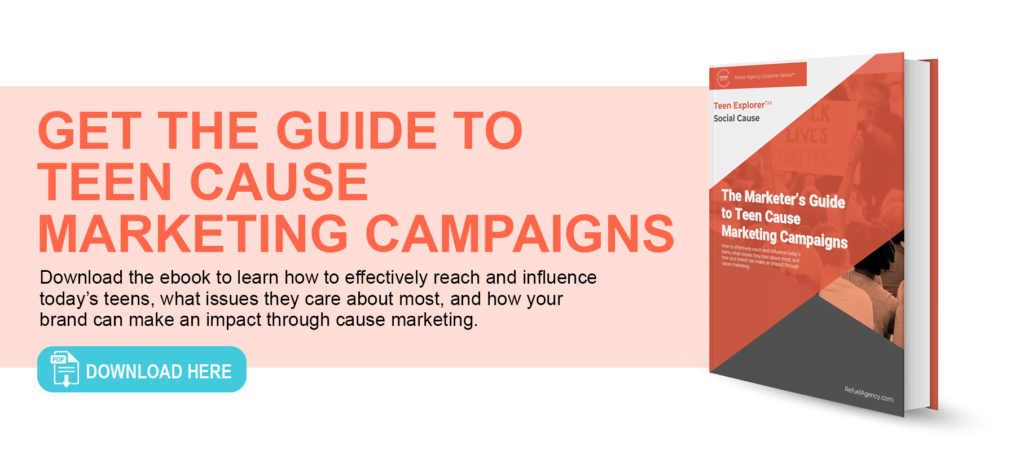Cause issues and marketing have been more pervasive over the past few years. In many ways, 2020 accelerated the already-increasing trend toward cause marketing—and created an environment in which brands could no longer stay silent about the causes they support.
To understand these impacts, Refuel conducted a targeted study to understand youths’ relationship to cause marketing. We found that cause marketing has taken on more importance as consumers increased their expectations for brand transparency, sustainability, fair treatment and standing up for their beliefs.
Read next: What Is Cause Marketing, and How Does It Drive Brand Loyalty?
1. Teens are hyper-aware of social issues
Today’s teens are coming of age in a hyper-connected information age — making it nearly impossible for any to be unaware of the pressing social and environmental issues around them. So, contrary to the archetype of a carefree or irresponsible teenager, today’s teens are well-informed, well-connected, and highly motivated to make a difference in the world around them.
2. Teens want to support brands that are making a difference
One of the ways that teens actually seek to make a difference is through the brands they support. Teens view their purchasing decisions as an extension of their values, and they expect brands to align with them on the stances they take on the causes that matter to them. Gen Z teens simply don’t believe in a world where brands can get away with not taking a stance. If you don’t stand up for what you believe in, you will lose Gen Z’s support.
3. 2020 informed the causes that teens care about the most
Of course, 2020 was a year full of unexpected circumstances, and it sparked a surge of awareness about social causes. Our research found that the events of 2020 had a major impact on the causes at the top of teens’ minds, and the causes they are most likely to support and talk with their friends about. Download our free ebook to find out which causes teens are about the most!
4. Teens are talking—with their parents, friends, and peers
Our research found that teens aren’t keeping their opinions to themselves. Instead, they’re talking amongst their friends, family, and peer groups about what they think and why. Teens are more likely than adults over the age of 25 to have frequent discussions about social causes with friends in-person and on social media.
And parents have an influence on what teens believe, too. Over half of teens agree that their parents have some influence on them when it comes to social causes and issues — and some types of parents have more influence than others.
Read next: 5 Examples of Brands That Got Cause Marketing Right
5. The types of cause campaigns that influence teens the most might surprise you
Determining how to reach teens with cause marketing campaigns that will resonate and make an impact can be a challenge, especially since teens’ media consumption habits and messaging preferences change frequently as they grow up. Our research uncovered the exact types of cause marketing campaigns that teens pay attention to—and which ones don’t.
For example, we found that PSAs influence teens more than even influencers do. Over 4 out of 5 Gen Z teens said they took some form of action after seeing a Public Service Announcement.
Interested in cause marketing for teens? Find out everything you need to know about creating a cause marketing campaign for teens by downloading our free ebook! We’re here to help you build cause marketing campaigns that make an impact.




